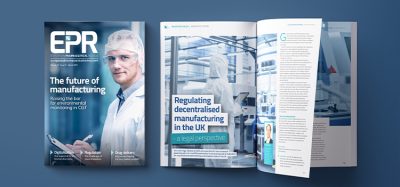DHL launches express cold chain service between Brazil and the US
Posted: 31 January 2019 | Nikki Withers (European Pharmaceutical Review) | No comments yet
Service expansion in Brazil will meet transportation demands of the pharmaceutical and clinical research industry…


DHL Express has launched a new service between Brazil and the United States for customers in the pharmaceutical sector.
The cold chain transportation solution – DHL Medical Express Service (WMX) – was piloted in Brazil in November 2018 and aims to address increased customer demand for faster and more predictable lead times.
DHL claims the service will be able to “meet the export and regulatory requirements for urgent shipments with specific temperature needs from several major cities in Brazil to most US destinations in 24 to 48 hours”.
WMX offers a choice of temperature options – ambient, chilled or frozen – and is capable of transporting laboratory kits and medical devices, biological samples (blood, saliva, urine, tissues, etc.), research products, vaccines, drugs for commercial and non-commercial use and medical devices.
The successful implementation of the DHL WMX clinical trial platform at DHL Express Brazil also includes a Customer Service Centre with bilingual staff and an onboarding team to support investigator sites. The DHL customer service team and all the operational back office systems reside within the DHL operation and are also integrated into a web-based interface – Express Logistics Platform (ELP).
“Our strong international network, compliant certifications and combination of responsiveness, reliability and cost-effectiveness will enable this service to be advantageous to all stakeholders in the clinical trial value chain,” said Mike Parra, CEO of DHL Express Americas.
Brian Bralynski, Director of Life Sciences Healthcare Americas, DHL Express, added: “Given the complexity of regulatory requirements in Brazil, our technology solution pre-prepares many of the necessary documents required by investigator sites to complete, while enabling DHL to begin the export and fiscal approval process the day of booking to mitigate delays.”
Related topics
Cold Chain Supply, Distribution & Logistics, Drug Supply Chain, Supply Chain









